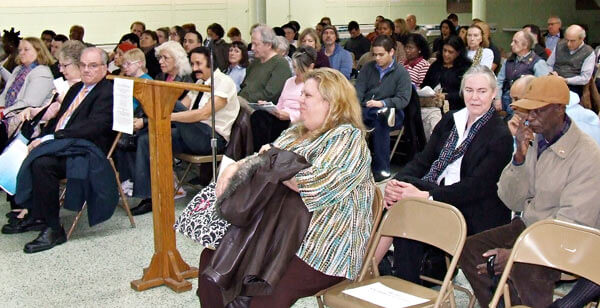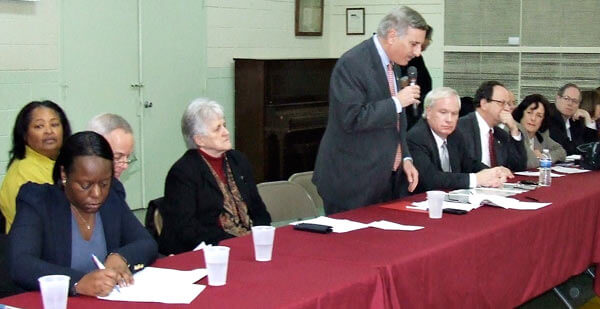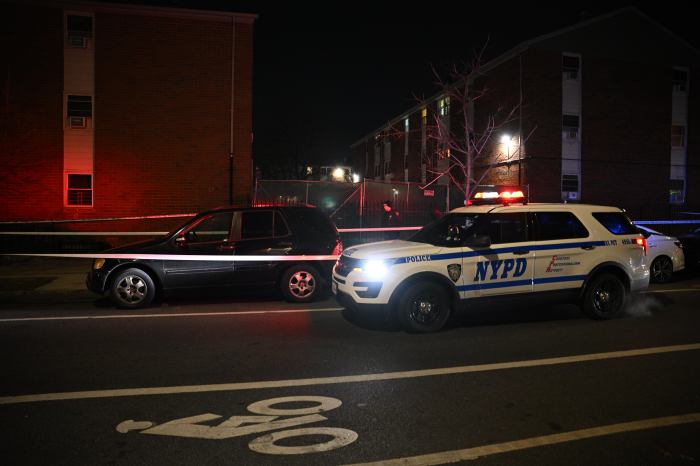By Karen Frantz
Scores of angry community members gathered to protest a Queens Hospital Center proposal to turn one of its vacant buildings into a residence for low-income individuals and people living with chronic health conditions, mental illness or HIV/AIDS at a town hall meeting last week.
A central issue for many was the Jamaica building’s proximity to several schools and the large size of the proposed residence. Some community members speaking out against the proposal invoked the tragic shooting at Sandy Hook Elementary School in Newton, Conn., as a cautionary tale.
“What about our children?” demanded Maria DeInnocentiis, a parishioner of St. Nicholas of Tolentine, which runs an elementary school catty-corner to the site of the proposed QHC residence. “Can anyone here guarantee that they will be without harm?”
Several area officials and representatives from QHC and ComuniLife, the organization that would be contracted to run the facility, also attended the packed meeting Jan. 30, held at St. Nicholas of Tolentine, at 150-75 Goethals Ave.
Under the QHC plan, its vacant T Building, at Parsons Boulevard between 82nd Drive and Goethals Avenue, would be turned into 251 apartment units. Some of the units would be offered to patients of Queens and Elmhurst hospitals with chronic conditions and others would be filled via a lottery to low-income individuals.
In addition to being near St. Nicholas of Tolentine Elementary School, the T Building is next to Queens Gateway to Health Sciences High School and close to several other high schools.
The QHC and ComuniLife representatives defended the proposal at the town hall, saying future residents would be screened before they could move into the building and that sex offenders or people with a history of violence would not be allowed to live there.
They also urged understanding for people with mental illness, saying the lack of housing can be a major hurdle to healing.
But although QHC and ComuniLife representatives said residents in the facility would be assigned case workers and would be under tight security, they said they ultimately could not force patients to take their medications and could not guarantee there would be no incidents in the community.
Several of the elected officials at the meeting, including state Assembly members David Weprin (D-Fresh Meadows) and Nily Rozic (D-Flushing), state Sen. Tony Avella (D-Bayside), Deputy Borough President Barry Grodenchik and others, said they had concerns about the proposal.
Avella was among the most outspoken in his criticism of the plan.
“This apparently is a very bad proposal,” he said, speaking to the community. “You’re against it. I’m against it.”
Reach reporter Karen Frantz by e-mail at kfrantz@cnglocal.com or by phone at 718-260-4538.



































